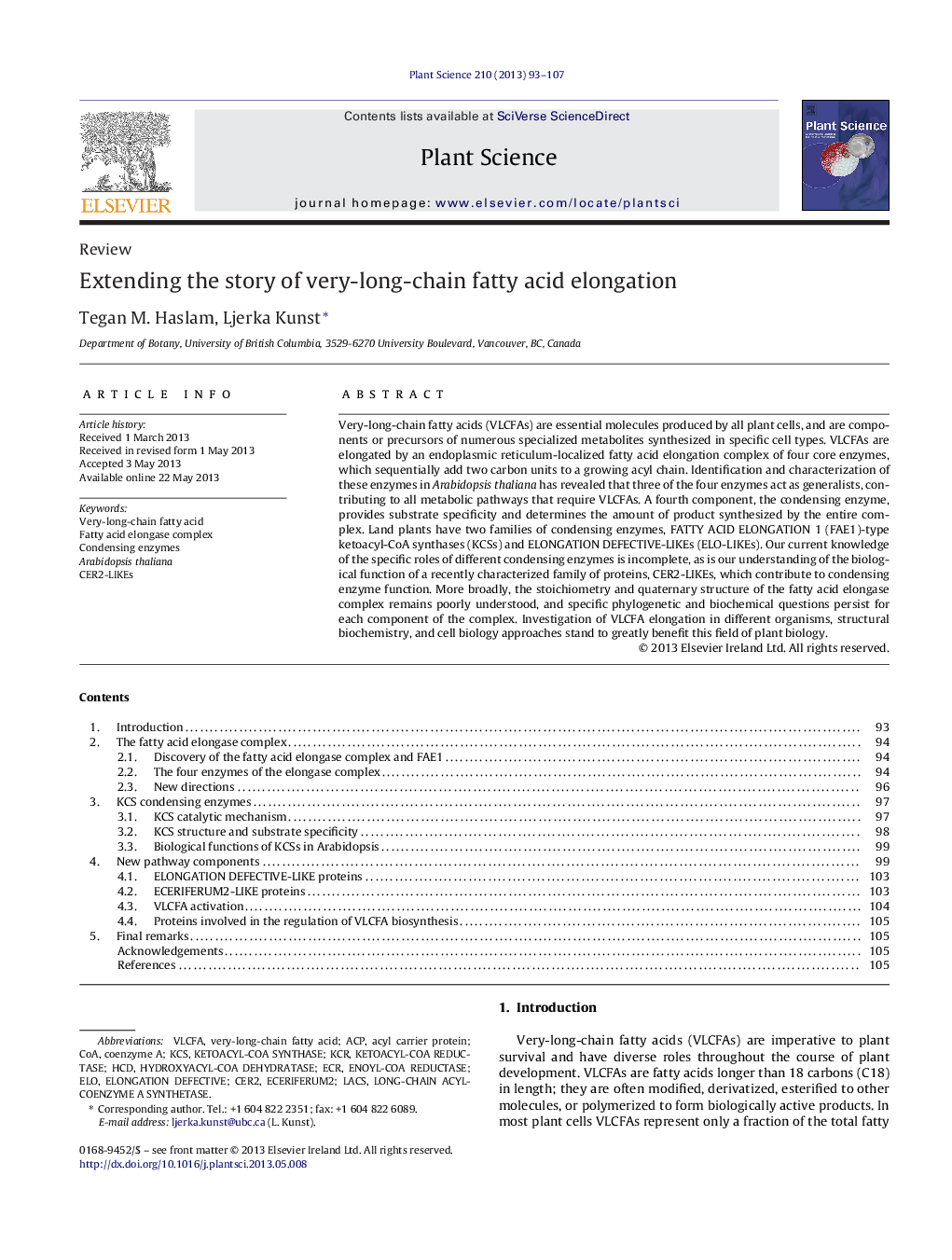| Article ID | Journal | Published Year | Pages | File Type |
|---|---|---|---|---|
| 8358635 | Plant Science | 2013 | 15 Pages |
Abstract
Very-long-chain fatty acids (VLCFAs) are essential molecules produced by all plant cells, and are components or precursors of numerous specialized metabolites synthesized in specific cell types. VLCFAs are elongated by an endoplasmic reticulum-localized fatty acid elongation complex of four core enzymes, which sequentially add two carbon units to a growing acyl chain. Identification and characterization of these enzymes in Arabidopsis thaliana has revealed that three of the four enzymes act as generalists, contributing to all metabolic pathways that require VLCFAs. A fourth component, the condensing enzyme, provides substrate specificity and determines the amount of product synthesized by the entire complex. Land plants have two families of condensing enzymes, FATTY ACID ELONGATION 1 (FAE1)-type ketoacyl-CoA synthases (KCSs) and ELONGATION DEFECTIVE-LIKEs (ELO-LIKEs). Our current knowledge of the specific roles of different condensing enzymes is incomplete, as is our understanding of the biological function of a recently characterized family of proteins, CER2-LIKEs, which contribute to condensing enzyme function. More broadly, the stoichiometry and quaternary structure of the fatty acid elongase complex remains poorly understood, and specific phylogenetic and biochemical questions persist for each component of the complex. Investigation of VLCFA elongation in different organisms, structural biochemistry, and cell biology approaches stand to greatly benefit this field of plant biology.
Keywords
Related Topics
Life Sciences
Agricultural and Biological Sciences
Plant Science
Authors
Tegan M. Haslam, Ljerka Kunst,
